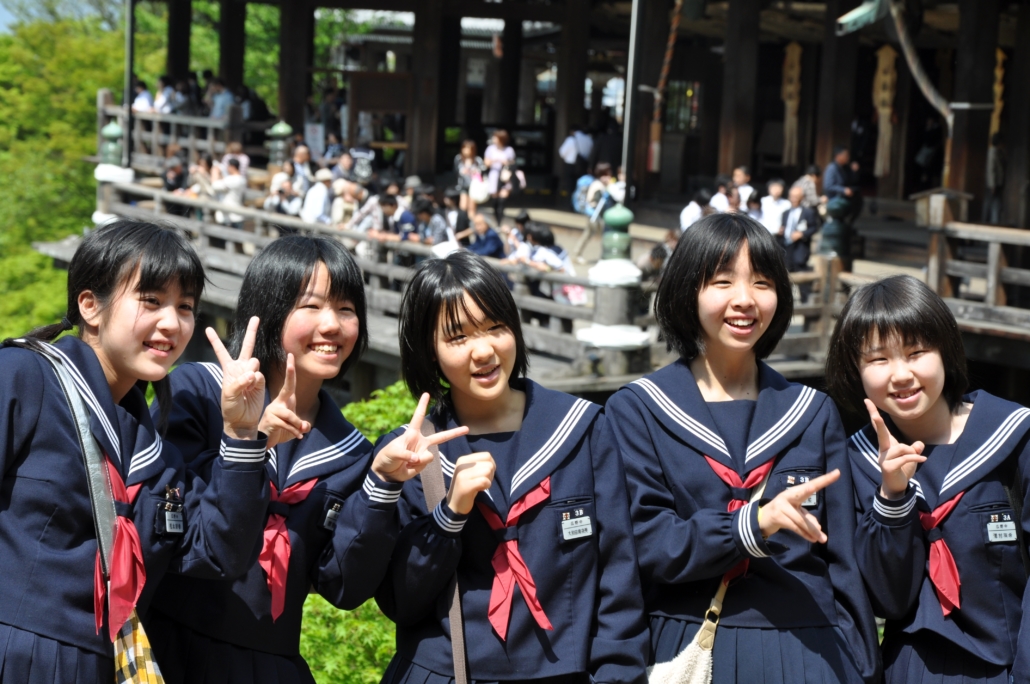Education Systems
The general school day looks similar to an American school day except for a few nuances. “Public schools in Japan have classes five days a week, from Monday to Friday” much like American schools, however “there are also schools that have classes on Saturday” (JNTO). Regarding junior high and high school, students typically have six class periods each day that each last about an hour. The school calendar is based on a year-round schooling plan. “The school year begins in April and ends in March of the following year” (JNTO). In addition, schools will opt for a three-semester split in which there are summer, winter, and spring breaks in between each semester.
“The rate of the school attendance for the 9 years of required education is about 99.98 percent.” Almost all children complete compulsory education in Japan. “Nearly 57 percent of senior high school students entered tertiary education institutions such as universities and junior colleges.” Of the 57 percent that entered, "according to the Organization for Economic Cooperation and Development, 37 percent” of them went on to complete tertiary education, “which is defined as either earning a college degree or completing a vocational program at a higher level than secondary school” (Jess, 2022).
The American education system is characterized by its diversity and an individualistic approach. Core subjects such as math, science, and history form the foundation, and students have the flexibility to choose elective courses that align with their interests. Conversely, In Japan, education is centered around a more holistic lifestyle approach. “Students are instructed by the same teacher for all of their subjects, which, similar to America, usually include Japanese[language], Math, Science and History” (
Wise, 2022). In addition, students also engage in moral and social education, creating a larger sense of community and social comfortability. While Japan's more rigorous school system determines students' academic trajectories, America's emphasis on individualization and customization of a college experience allows for greater flexibility in career choices. Both systems have strengths that reflect the cultural values and priorities of each nation but ultimately, the pursuit of knowledge remains as a common denominator.


Comments
Post a Comment